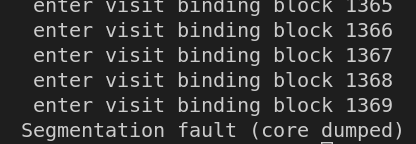my code:
from tvm.relax.expr_functor import PyExprMutator, mutator
@mutator
class MyPass(PyExprMutator):
def __init__(self, mod = None) -> None:
super().__init__(mod)
self.id = 0
def visit_binding_block(self, block):
print(f" enter visit binding block {self.id}")
self.id += 1
return super().visit_binding_block(block)
and got the result:

